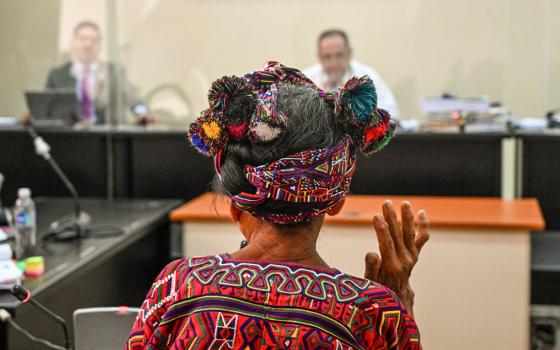Thirty-five years ago, when Annunciation House -- a sanctuary and home of hospitality that has served more than 100,000 refugees, homeless poor and undocumented workers -- was started in El Paso, Texas, founding director Ruben Garcia and a few friends wanted to place themselves among the poor, to see where the poor would lead them. He said, "They took us to the undocumented -- the most vulnerable."
Garcia explained to me that since the undocumented have no legal status in the United States, they are forced to take undesirable, poorly paid jobs that offer no benefits. Unlike poor U.S. citizens, undocumented workers and their families cannot receive food stamps, Medicaid or housing assistance. They are at the lowest rung of American life.
So why do they come? They come because most often, they and their families are extremely poor, and they cannot find jobs in their native countries that pay a living wage. And the U.S. has many more low-skilled jobs than there are Americans willing to take them.
But why don't they enter legally? Because there are too few low-skilled visas available.
Kevin Appleby, director of migration policy for the United States Conference of Catholic Bishops, told me only 5,000 permanent resident visas and approximately 106,000 temporary worker visas are issued per year for foreign low-skilled workers.
Yet, he said, before the current recession, 500,000 workers every year came to the United States and found jobs.
Therefore, millions of foreign workers must secretly and dangerously -- moving through deserts and facing drug gangs -- cross the border to fill vacant American jobs in order to support their very poor families.
"The current system is a mess," Appleby said.
But there is hope that this mess can soon be cleaned up -- at least somewhat.
The "Border Security, Economic Opportunity, and Immigration Modernization Act of 2013" (S.744) would allow approximately 11 million undocumented migrants to come out of the shadows of second-class existence by providing provisional legal status and protection from deportation and worker exploitation. And it would open a path toward permanent residency and citizenship after waiting 10 and 13 long years, respectively.
The U.S. Conference of Catholic Bishops support this bill, Appleby said. But they need our help to get it passed into law. Please email and call your U.S. senators and House representative and urge them to co-sponsor and vote for the "Border Security, Economic Opportunity, and Immigration Modernization Act of 2013."
Blessed Pope John XXIII in his encyclical Pacem in Terris ("Peace on Earth") wrote, "Every human being has the right to freedom of movement and of residence within the confines of his own country; and, when there are just reasons for it, the right to emigrate to other countries and take up residence there."
Garcia asked me to raise the following questions on behalf of the undocumented: Should undocumented immigrants have to live in an underground world? Is it right to use closed borders for the purpose of exploiting cheap labor? Why is it so acceptable to have undocumented workers perform the jobs few Americans are willing to do -- pick our fruits and vegetables, wash dishes, work in meat slaughterhouses?
Lord Jesus, heal our nation's indifference and inspire us to welcome these strangers as valuable members of your one human family so that on the day of judgment, we may gladly hear you say, "I was a stranger and you welcomed me."
[Tony Magliano is an internationally syndicated social justice and peace columnist. He is available to speak at diocesan or parish gatherings about the principles of Catholic social teaching. His email address is tmag@zoominternet.net.]
Editor's note: We can send you an email alert every time Tony Magliano's column, "Making a Difference," is posted. Go to this page and follow directions: Email alert sign-up.




